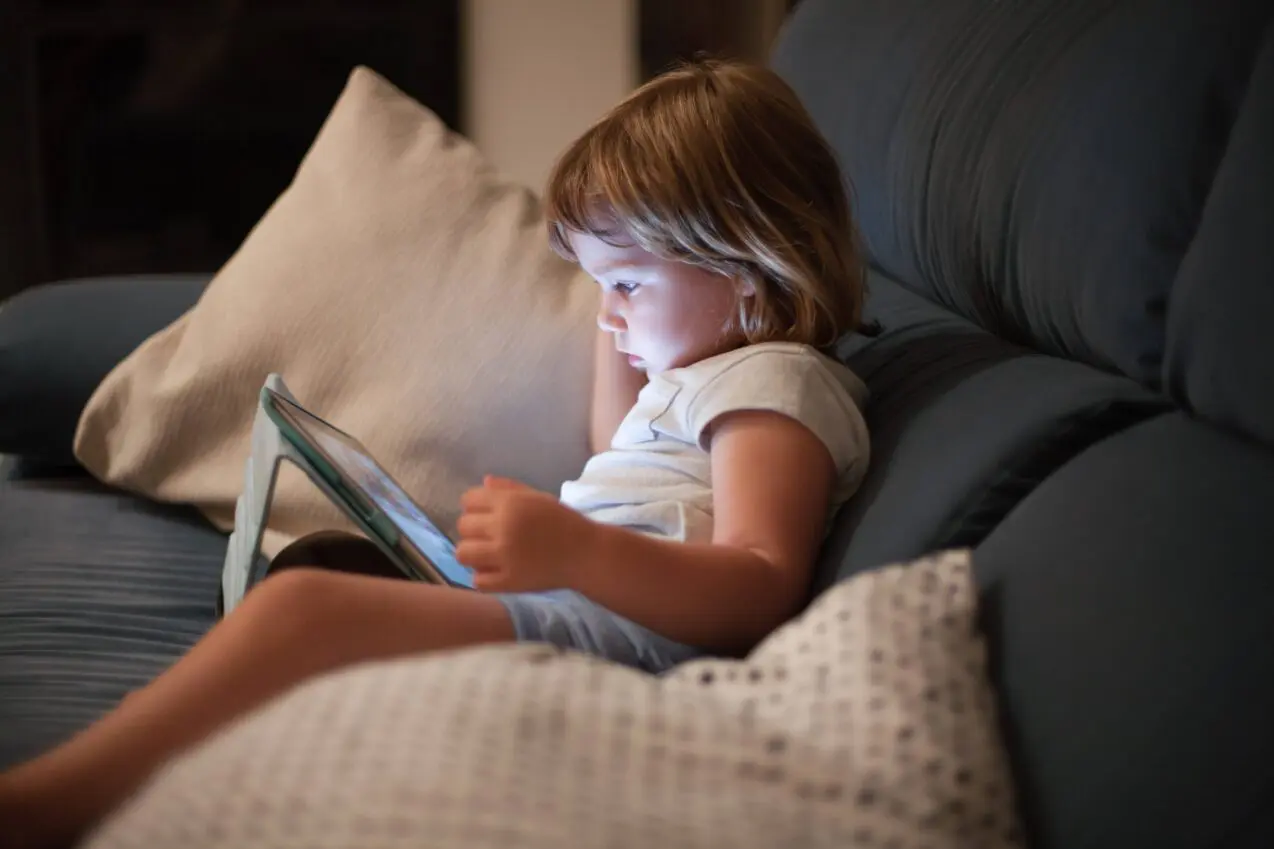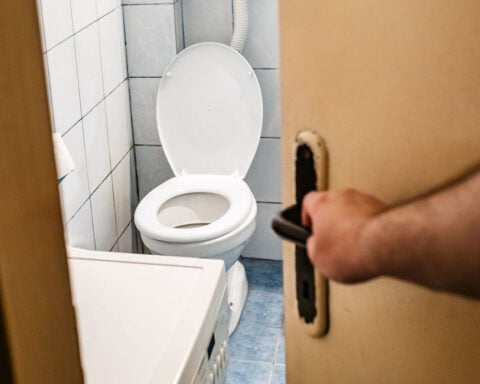A recent study published in JAMA Pediatrics suggests that excessive tablet use by preschoolers may hinder their emotional development, potentially leading to a cycle of increased screen time and behavioral issues.
Researchers from the Université de Sherbrooke in Canada conducted a study involving 315 children from Nova Scotia. The study found that children who frequently use tablets for entertainment may struggle to manage their emotions, resulting in angry outbursts. In response, parents often give their children tablets to calm them down, perpetuating the cycle.
The team tracked the children's tablet usage and emotional behavior from ages three and a half to five and a half years old, spanning from 2020 to 2022. The findings revealed a concerning trend: children who used tablets more frequently at age three and a half exhibited increased expressions of anger and frustration a year later. Subsequently, these emotional outbursts at age four and a half were associated with higher tablet usage by age five and a half.
"Screen use in general and mobile device use in particular are increasingly present in the lives of young children," the researchers wrote. "Our study suggests that parents be sensitized that tablet use in early childhood can disrupt the ability to manage anger and frustration and lead to increased outbursts in young children."
Researchers noted a significant rise in young children's screen time, with average daily usage increasing from five minutes in 2020 to 55 minutes in 2022. Many four-year-olds now have their own devices.
According to the American Academy of Pediatrics, screen time for children aged two to five should be limited to one hour daily of high-quality programming. However, the study revealed that children spent an average of six and a half hours weekly on tablets at age three and a half, increasing to seven hours by age five and a half.
The researchers highlighted the potential negative impacts of excessive screen time on preschoolers' health, academic performance, and social skills. They emphasized that reduced interaction with parents and peers may hinder children's ability to learn emotional regulation.
However, the study acknowledged several limitations. The research took place during the COVID-19 pandemic when screens were often used as a childcare alternative. Additionally, the quality of content viewed and parental interaction during tablet use were not factored into the analysis.
The authors noted that some applications and programs, such as the Daniel Tiger program and mobile application, have shown potential in supporting emotional regulation skill development.
Dr. Scott Krakower, a child psychiatrist at Northwell Zucker Hillside Hospital in Queens, advocated a moderate screen time approach. "If you are going to let the kids use the iPad, then I would say set yourself a reasonable time when in the back of your head," Krakower said. "Maybe it might be 20 minutes on the iPad or 15 minutes on iPad and then there should be a break."

 Suspect in German Christmas market attack held on murder charges
Suspect in German Christmas market attack held on murder charges
 Italy PM says EU will not allow Russia, others to endanger security through immigration
Italy PM says EU will not allow Russia, others to endanger security through immigration
 Stampedes in Nigeria leave at least 32 dead in a rush to get Christmas gifts
Stampedes in Nigeria leave at least 32 dead in a rush to get Christmas gifts
 Turkey says it believes Kurdish fighters will be forced out of all Syrian territory
Turkey says it believes Kurdish fighters will be forced out of all Syrian territory
 China takes steps against Canada institutions, individuals over Uyghurs, Tibet
China takes steps against Canada institutions, individuals over Uyghurs, Tibet
 Ukraine's air defence downs 52 out of 103 Russian drones, air force says
Ukraine's air defence downs 52 out of 103 Russian drones, air force says
 Japan's antitrust watchdog to find Google violated law in search case, Nikkei reports
Japan's antitrust watchdog to find Google violated law in search case, Nikkei reports
 Starbucks workers expand strike in US cities including New York
Starbucks workers expand strike in US cities including New York
 Isolated Chicago communities secure money for a coveted transit project before Trump takes office
Isolated Chicago communities secure money for a coveted transit project before Trump takes office
 Caitlin Clark effect hasn't reversed the decades-long decline in girls basketball participation
Caitlin Clark effect hasn't reversed the decades-long decline in girls basketball participation
 Howard throws 2 TD passes to Smith to help Ohio State rout Tennessee 42-17 in CFP
Howard throws 2 TD passes to Smith to help Ohio State rout Tennessee 42-17 in CFP
 JuJu Watkins and No. 7 USC hold off Paige Bueckers and fourth-ranked UConn 72-70
JuJu Watkins and No. 7 USC hold off Paige Bueckers and fourth-ranked UConn 72-70
 New study reveals how tablet overuse and excessive screen time may impair preschoolers' emotional development.
New study reveals how tablet overuse and excessive screen time may impair preschoolers' emotional development.






